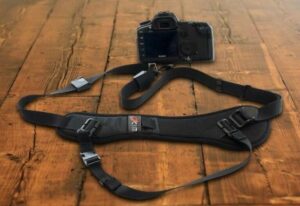What You Didn’t Know About Industrial Cameras

Keeping up with the modern technology can be quite daunting since new products keep arriving in the market. With the new developments in technology, camera features evolve every time. Thus you need to be on the look out for more powerful and versatile cameras. Industrial cameras are among the most recent devices to hit the market with advanced features.
Here’s everything you need to know about them.
What are Industrial Cameras?
Unlike the standard cameras, industrial cameras feature the most advanced shock resistance properties. They can operate in the toughest surroundings. They have features for withstanding vibrations and intense temperatures. They’re also the most sought-after cameras in this century. You’ll likely find them in pharmaceutical and mining practices. These types are not one of those you commonly see as cameras for YouTube and personal use. They are industrial and production grade
Photography, as an art, is always part of the society’s history. Technology is currently taking this art to a whole new level to improve people’s experiences. These days, you can find cameras on the market with improvements in quality, Ethernet cables and high density features. Industrial cameras are proof that technology is revolutionizing modern photography.
How Versatile are Industrial Cameras?
Industrial cameras have positive impacts in various aspects of modern life. They help track patients’ health and progress in the healthcare sector. They also increase the safety or sensitive investments and transactions in the business field.
You can trust an industrial camera to work the magic for you when it comes to maintaining professionalism in photography. The camera is distinguishable from standard ones based on how it can shoot high-definition images. Both online and brick and mortar stores are currently embracing the functions to promote societal growth and development.
Industrial cameras are available in various sizes. They can accommodate all your needs depending on the size of the camera you’re using. Their weather-resistance features make them more competitive to standard cameras.
Experts in robotics and software development use industrial cameras to customize their applications. Robotic engineers rely on them to gain deeper insights on the workings of the robots. Besides, they use the cameras to diagnose potential problems. The cameras also help in advanced scientific experiments that depend on the precision and accuracy of data.
Why Do You Need an Industrial Camera?
An industrial camera is different from a device you’ll buy without knowing how you’ll enjoy it. Like other sophisticated devices, industrial cameras have various functions to play. They are as follows:
Image Capturing and Recording
Industrial cameras come with built-in features for capturing and recording images. They are more than twice as fast as the standard cameras. They can also save some high-quality images without running low on space.
Maintaining the Highest Image Quality
Ability to to capture high-quality images is one of the primary factors that sets industrial cameras apart. The cameras produce images with finer details. An object lying far away from the camera will still appear clearly on the image.
Maintaining Accuracy
Chances of missing an object are low when using an industrial camera. Industrial cameras have higher pixels and can capture images at over ten times the frame speed of a standard camera. You can rely on them to maintain the accuracy of a photo session without compromising on the image quality.
Common Examples of Industrial Cameras
The most common types of industrial cameras include thermal imaging industrial cameras and industrial infrared cameras. Their roles differ depending on where you use them.
Thermal imaging industrial cameras are used to identify heat signals in a particular surrounding. These devices have sensors that can establish the different heat signal variations in different objects.
Industrial infrared cameras, on the other hand, can help spot potential damages in phot-voltaic cells. They can improve the conversion of light into electricity by spotting the potential damages in the circuits. The cameras also help identify plastics that are fit for recycling in the industrial sector.
Types of Sensors in industrial Cameras
CCD and CMOS are the two types of sensors found in industrial cameras. They differ in terms of sensitivity and type of technology. They’re effective depending on the bit depths, frame rate, wavelengths and range necessities of an industrial camera.
CMOS Sensors
CMOS, which stands for Complementary Metal Oxide Semiconductor, is the most recent technology used in camera sensors. CMOS sensors are highly sensitive than the CCD ones. Primarily made by Sony, the sensors can also work on digital cameras and smartphones.
CCD Sensors
CCD (Charged Couple Device) sensors are useful in capturing both stationary and moving objects. They can capture light and convert it into electrons needed to spot an object. They are also great at using light to produce images that lack distortions.
Both CMOS and CCD sensors have built-in features for converting light photons into electrons and produce images in the process. They can also spot different types of objects depending on their specifications. CCD sensors are more effective in producing high-quality images than the CMOS ones. They can produce the images with the lowest noise possible to prevent distortions.
CMOS sensors, on the other hand, create images with a lot of noise. This factor makes them less ideal for creating high-quality images. They also require more light exposure than the CCD sensors. You’ll find that CCD sensors are costly than the CMOS ones.
The Bottom Line to Using Industrial Cameras
Most industrial cameras require you to have some technical knowledge before operating them. Using them for the wrong reasons may reduce your chances of benefiting from them. You can find an ideal industrial camera for your specific technical field. Just like the standard ones, they have model numbers, warranty information, user guide and other relevant accessories.
If you’re planning to invest in an industrial camera, consider its build quality and features that may be relevant to your venture. You should also buy one that fits your budget since most of them are expensive.
You can also consult with your learned colleagues to figure out the industrial camera that is worth buying. Note that the device can only guarantee you great returns on investments if it helps you accomplish certain tasks.






